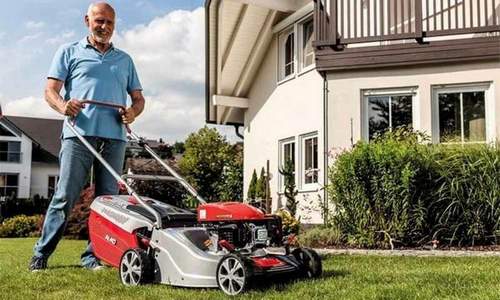Gas Or Electric Lawn Mower – How To Choose And Which Is Better
Regular lawn care is a guarantee of the safety of its attractive appearance and health. An irreplaceable assistant in this matter is a lawn mower. a tool that is familiar to almost every owner of a personal plot.
The modern market offers a large assortment of devices under consideration that differ not only in operational and technical characteristics and cost, but also in principle of operation and energy source used.
The undisputed leaders are gasoline and electrical appliances. In the course of studying the information below, you will find out which lawnmower is better: gasoline or electric, and how are the arguments in favor of this or that option reasoned.
Lawn Mower Basics
The key difference between the units under consideration is the energy resource used, which becomes clear from the names of the devices.
Gasoline models are characterized by higher performance and power. They are optimally suitable for servicing spacious lawns, They are characterized by excellent mobility and are not so dependent on the source of electricity, in comparison with electric "brothers".
In the case of gas mowers, there is a direct relationship between the installed engine power and the mowing width indicator: the larger the first characteristic, the more impressive the second.
The design of gasoline units in most cases is self-propelled, i.e. the owner just needs to hold the unit by the handles, controlling its movement, and the device will ride on its own, which is very convenient.
But in terms of cost, a gasoline-powered mower loses significantly to its electric counterpart. Here, the buyer must decide for himself what is more important for him: saving or usability and productivity.
The power of electric lawnmowers can range from 300 to 1500 W, depending on the location of the engine (in more powerful models, it is placed on top).
Video: Gas Or Electric Lawn Mower. How To Choose And Which Is Better
The option is optimally suited for the care of small flat areas where potholes and stones are not found. An electric lawn mower, unlike, for example, a brushcutter, is not able to cope with dense bushes.
The video features mowers of various types.
- inability to use in rainy weather (subjective lack, because few people have a desire to mow grass under heavy rain);
- comparatively low engine power, in accordance with which the capture area is reduced. As a result, it will be necessary to spend more time processing the plot with an electric mower, all other things being equal, than when using a gasoline analogue.
The main advantages of units using electricity as an energy source, the following:
- practicality;
- maneuverability;
- affordable cost, etc.
Key selection criteria
When choosing a lawn mower, you need to compare the available options for several groups of criteria: firstly, the technical and operational properties, and secondly, in accordance with the features and operating conditions. Follow the link, where we will specifically describe for you how to choose a lawn mower, based on your wishes and preferences. For greater convenience, information on this subject is framed in the form of tables.

Table. Technical and operational characteristics
When using a high-power lawn mower, such circumstances can lead to damage, as the engine will most likely not turn off and continue to rotate jammed cutting tools. As a result, the knives are bent, the shaft will be deformed and the bushings will be destroyed, and this already requires expensive overhaul.
Generally To serve a medium-sized site, the model’s capabilities with 6-7 horses will be enough. Buying a more powerful unit in most cases is pointless and impractical.
The following table provides recommendations for choosing a lawn mower, taking into account the features of the site being serviced and ease of operation.
See the device selection criteria in the video.